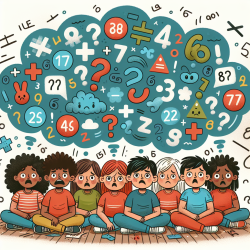Introduction
Educational transitions, such as the shift from primary to lower secondary school, are pivotal moments in a student's academic journey. Research has shown that these transitions can significantly impact adolescents' academic achievement and mental health. A recent study titled "Associations between Adolescents’ Interpersonal Relationships, School Well-being, and Academic Achievement during Educational Transitions" provides valuable insights into the dynamics at play during these transitions.
The Importance of Interpersonal Relationships
According to the study, supportive relationships with parents, peers, and teachers are crucial protective factors that facilitate successful educational transitions. These relationships not only promote school well-being but also enhance academic achievement. The research highlights a transactional model where high-quality interpersonal relationships boost school well-being, which in turn leads to better academic outcomes.
School Well-being: A Key Factor
School well-being is defined by the study as the emotional experiences of adolescents within the school environment, including school satisfaction and stress. The research emphasizes that school well-being plays a significant role in adolescents' current and future well-being and educational outcomes. High levels of school satisfaction and low levels of school stress are associated with improved academic performance.
Practical Implications for Practitioners
For practitioners working with adolescents, the study offers several actionable insights:
- Foster Supportive Relationships: Encourage strong, supportive relationships between students and their parents, peers, and teachers. These relationships are foundational to enhancing school well-being and academic achievement.
- Monitor School Well-being: Regularly assess students' school satisfaction and stress levels. Interventions should aim to increase school satisfaction and reduce stress to improve academic outcomes.
- Promote Positive School Environments: Create school environments that support students' emotional and social needs. This includes providing resources and support for teachers to build strong relationships with students.
Encouraging Further Research
While the study provides valuable insights, it also highlights the need for further research. Understanding the reciprocal dynamics between interpersonal relationships and school well-being can lead to more effective interventions. Practitioners are encouraged to explore these dynamics in their own educational contexts to tailor interventions that meet the specific needs of their students.
Conclusion
Educational transitions present both challenges and opportunities for adolescents. By leveraging the insights from this study, practitioners can enhance the support systems for students, promoting better academic and well-being outcomes. The findings underscore the importance of fostering high-quality interpersonal relationships and supporting school well-being during these critical transitions.
To read the original research paper, please follow this link: Associations between Adolescents’ Interpersonal Relationships, School Well-being, and Academic Achievement during Educational Transitions.










